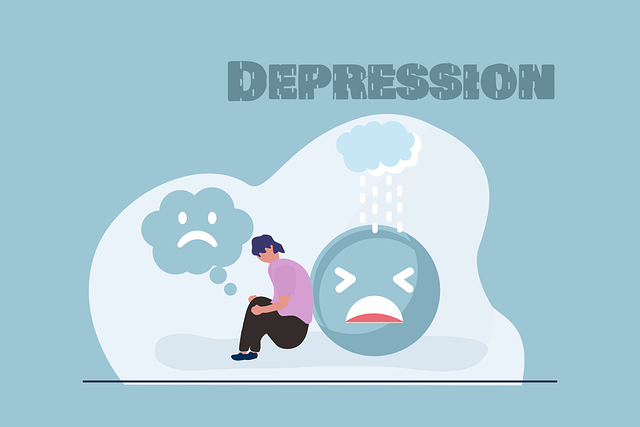Colorado Springs Adjustment Disorder (CSAD) is a stress-related mental health condition with symptoms like anxiety, depression, and relationship issues. Effective treatment requires cultural sensitivity and specialized training for healthcare providers. Therapy plays a key role in building coping skills, understanding, and connection through techniques like mindfulness and cognitive reframing. Individuals can manage CSAD by identifying triggers, finding qualified therapists, setting achievable goals, and regularly reviewing progress.
In the face of life’s challenges, managing stress effectively is crucial. This is especially true for individuals dealing with the Colorado Springs Adjustment Disorder (CSAD), characterized by symptoms like anxiety and depression after significant changes or traumatic events. This article explores powerful stress management techniques designed to help CSAD sufferers cope and recover. We delve into evidence-based therapies, offering a step-by-step guide to integrating these practices into daily life for long-term well-being, focusing on strategies tailored to Colorado Springs Adjustment Disorder therapy.
- Understanding Colorado Springs Adjustment Disorder: Symptoms and Impact
- Effective Stress Management Techniques for Coping and Recovery
- Integrating Therapy into Your Routine: A Step-by-Step Guide for Success
Understanding Colorado Springs Adjustment Disorder: Symptoms and Impact

Colorado Springs Adjustment Disorder (CSAD) is a mental health condition that can significantly impact individuals’ daily lives and overall well-being. It often arises when someone experiences a major life change or stressor, leading to difficulty adjusting and coping. Symptoms may include feelings of extreme anxiety, depression, irritability, and physical manifestations such as insomnia, fatigue, and gastrointestinal issues. Those affected might also struggle with concentration, decision-making, and maintaining healthy relationships.
The impact of CSAD can be profound, affecting not just the individual but their social and professional spheres as well. It’s crucial to recognize that cultural sensitivity and competency among healthcare providers are vital in treating this disorder effectively. Understanding the unique challenges faced by individuals from diverse backgrounds is essential, especially given the potential for cultural barriers to accessing quality mental wellness care. Healthcare Provider Cultural Competency Training can play a pivotal role in fostering an inclusive environment and improving outcomes for those dealing with CSAD.
Effective Stress Management Techniques for Coping and Recovery

In today’s fast-paced world, effective stress management techniques are essential tools for navigating life’s challenges. For individuals struggling with adjustment disorders in Colorado Springs, therapy plays a pivotal role in coping and recovery. Through empathy building strategies, mental health professionals can foster understanding and connection, helping clients make sense of their experiences and emotions. This supportive environment encourages the development of inner strength, empowering individuals to face stressors head-on.
Risk management planning is another crucial component of stress mitigation. By identifying potential triggers and implementing proactive measures, individuals can reduce anxiety and promote resilience. Techniques such as mindfulness meditation, deep breathing exercises, and cognitive reframing enable one to gain perspective and respond calmly to stressful situations. These strategies not only enhance overall well-being but also serve as valuable resources for managing adjustment disorders in Colorado Springs and promoting lasting mental health.
Integrating Therapy into Your Routine: A Step-by-Step Guide for Success

Integrating therapy into your routine can be a game-changer when it comes to managing stress and overcoming challenges like Colorado Springs Adjustment Disorder. It’s a process that requires commitment, but with the right approach, you can unlock significant benefits for your mental well-being. Start by identifying specific stress triggers in your life. Is it work-related pressure, personal relationships, or financial concerns? Once these are clear, seek out a qualified therapist who specializes in stress management and adjustment disorders. They will guide you through an initial assessment to understand your unique situation.
Next, collaborate with your therapist to set achievable goals for therapy. This might include learning specific stress reduction methods, such as mindfulness techniques or cognitive behavioral therapy (CBT), which can empower you to navigate stressful situations more effectively. Additionally, therapists often emphasize the importance of resilience building, helping you develop strategies to adapt and bounce back from life’s challenges. Regularly reviewing your progress and adjusting your treatment plan will ensure success in integrating therapy into your routine, leading to improved mental health and enhanced quality of life.
In addressing Colorado Springs Adjustment Disorder, effective therapy plays a pivotal role in managing symptoms and fostering recovery. By integrating proven stress management techniques into daily routines, individuals can navigate challenges more effectively. This step-by-step guide emphasizes the importance of seeking professional help, consistently practicing coping strategies, and creating a supportive environment for holistic healing. Through dedicated effort, those affected by this disorder can find balance and improve their overall well-being, ultimately enhancing their quality of life.














